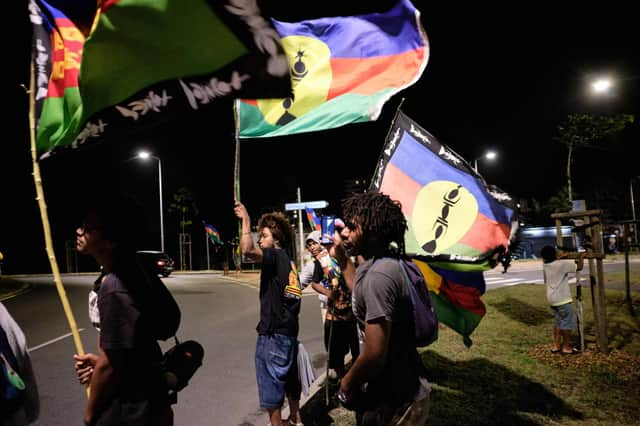New Caledonia referendum: why the French overseas territory voted on independence from France - and results explained


Citizens of an island claimed by France in 1853 have voted to reject independence and remain a part of the French republic
New Caledonia, a small archipelago in the South Pacific off the east coast of Australia, is one of the UN’s 17 “non-self governing territories” where the decolonisation process has not been completed.
Advertisement
Hide AdAdvertisement
Hide AdThe French overseas territory of New Caledonia voted to remain with 53.26 per cent of votes, following a high voter turnout of more than 85 per cent of the islands’ 270,000 or so inhabitants.
French President Emmanuel Macron said the result is a “sign of confidence in the republic”.
Why was there a vote?
The referendum comes two years after voters there were asked the same question in 2018 and returned the same result by a slightly wider margin, of 56.7 per cent.
The two referendums came about as a result of a series of votes which took place in the 1990s, following outbreaks of violence in the territory over independence, between the indigenous Kanak people and the descendants of European settlers.
The 1998 Noumea Accord, which came about following the violence, allows New Caledonia up to three referendums on independence by 2022.
The indigenous Kanaks make up around 40 per cent of the population, whereas European descendants account for approximately a third, with the rest hailing from the nearby pacific islands or having mixed heritage.
In the previous referendum, voting broke down broadly along ethnic lines, with the Kanaks largely voting for independence and the settler’s descendants mainly voting to remain under French rule.
Why is the territory important to France?
The islands hold a vast wealth of nickel deposits and the metal makes up a large proportion of the territories’ exports, due to its many uses in manufacturing and electronics, with China, the regional power, a major buyer.
Advertisement
Hide AdAdvertisement
Hide AdAs a result of this major export, the territory is considered to be an important economic and political asset in the region, where the influence of China is growing.
New Caledonia does have a significant degree of autonomy, but still receives subsidies from Paris and defers to France on certain issues, like defence and education.
The island was named by British explorer James Cook, after the latin name for Scotland.